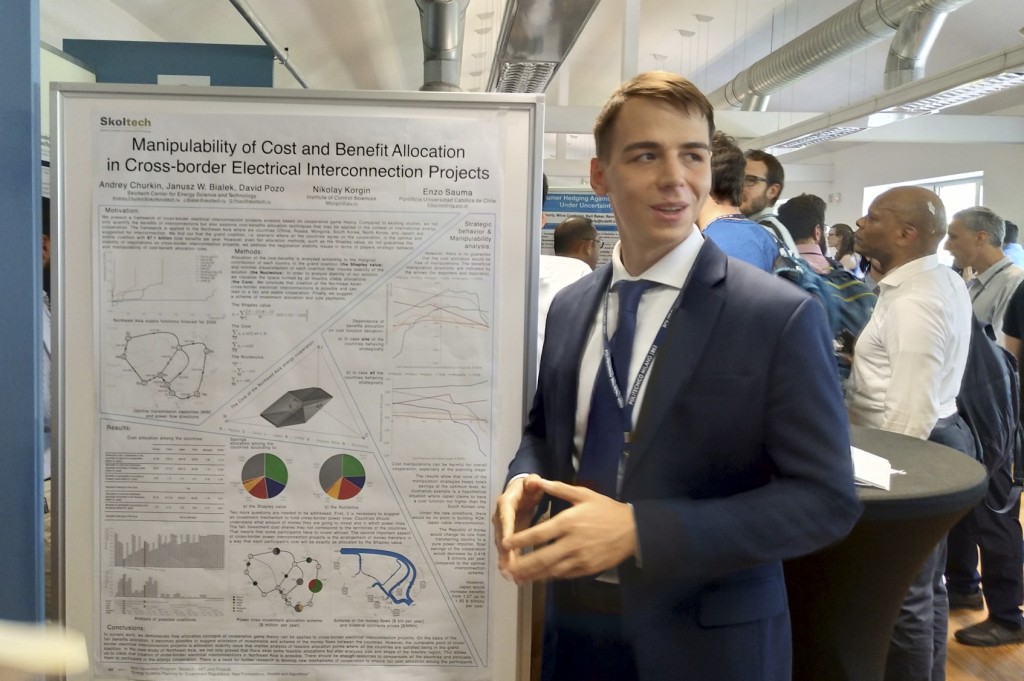Our paper titled “Can cross-border transmission expansion lead to fair and stable cooperation? Northeast Asia case analysis” has been accepted for publishing in the Energy Economics journal. The paper comprises the results obtained by the research done by our Ph.D. student Andrey Churkin in collaboration with the Professors Janus Bialek (Skoltech), Enzo Sauma (PUC Chile), Nikolay Korgin (IPU RAS) and David Pozo (Skoltech).
In the paper, we present a novel methodological framework of cross-border power interconnection projects analysis based on Cooperative Game Theory principles. Compared to existing studies, we not only quantify the benefits of interconnections and suggest cost-benefit allocation techniques, but also analyze the stability of the allocations, which is a crucial aspect in regions where coordination and mutual trust between countries have not been built yet. The framework is applied to the Northeast Asia case where six countries (China, Russia, Mongolia, South Korea, North Korea, and Japan) are suggested for cross-border transmission expansion planning cooperation. We found out that the grand coalition (i.e., the scenario where all countries agree on the cooperation) is the optimal and stable coalition, with $7.1 billion total savings per year. Finally, we suggested a scheme of investment allocation and payments settlement between the Northeast Asian countries in order to ensure that the proposed interconnections are plausible in practice.
The results have been already presented at the PowerTech 2019 conference in Milan and at the Symposium on Asia International Grid Connection in Tokyo.

Andrey Churkin presenting the research results at the PowerTech 2019 conference